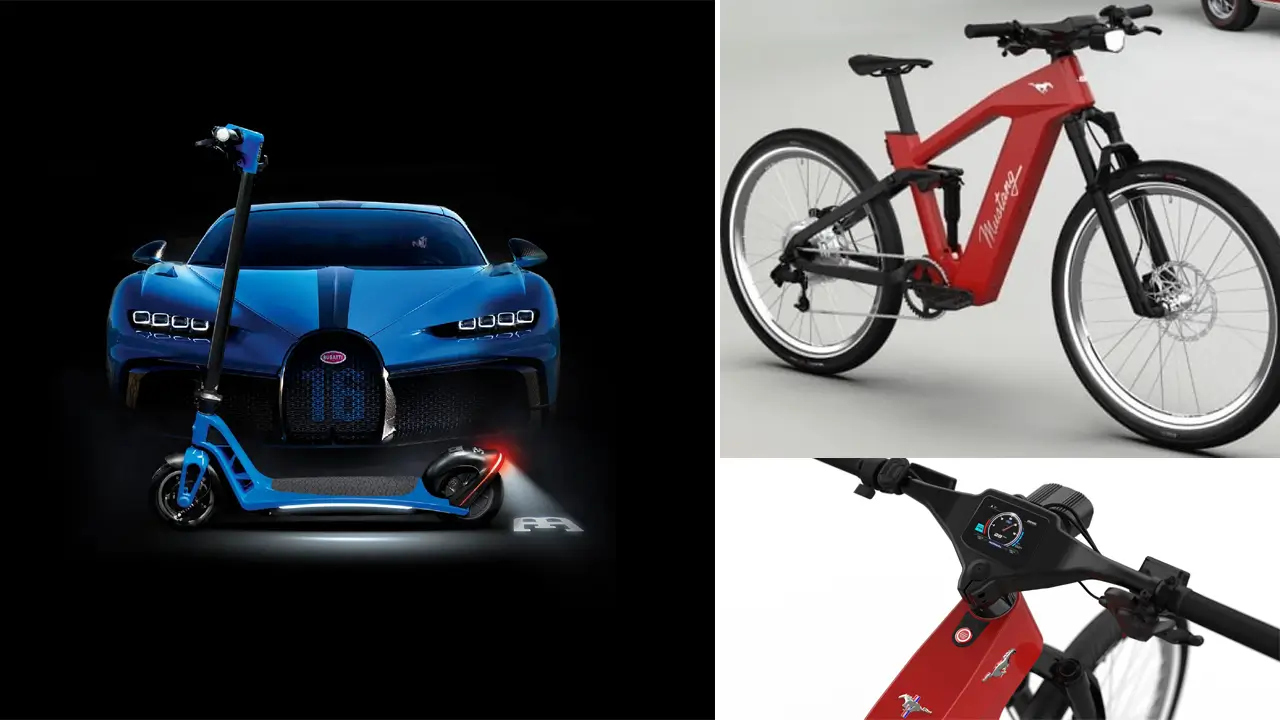The automobile companies have experienced a significant change in recent years. Traditionally concentrating on cars, major automakers are making more and more investments in electric motorcycles. This tactical change is a calculated reaction to a wide range of intricate issues influencing the direction of transportation, not merely a fad. Urbanization, environmental concerns, technology developments, and changing consumer preferences are some of these reasons. By examining these factors, we can comprehend the reasons behind the attention top automakers are giving to electric motorcycles as well as the implications for transportation in the future.
Pressures from the Environment and Regulations
A major motivator for automakers to venture into the electric bike market is the increasing focus on environmental sustainability. Governments everywhere are enforcing stronger emissions limits and providing incentives for cleaner transportation options as awareness of climate change grows. Electric bikes fit in perfectly with these environmental objectives because they have a lower carbon footprint than conventional gasoline-powered vehicles. Car firms that have diversified into electric bikes are promoting themselves as environmentally conscious corporate citizens while also helping reduce urban air pollution.
Moreover, a lot of cities are progressively implementing congestion charges and low-emission zones, which makes it harder for regular cars to run well in cities. Because they are lightweight and produce no emissions, electric bikes present a practical answer to these regulatory issues. Adopting electric bikes enables automakers to future-proof their operations against changing legal requirements and remain ahead of regulatory demands.
Urbanization and Shifting Patterns of Mobility
Another important reason driving the trend toward electric bikes is urbanization. The increasing urbanization of the world presents considerable obstacles for conventional cars concerning parking, traffic, and general convenience. With their increased mobility and simplicity of parking in crowded urban locations, electric bikes make a compelling short-distance transit choice. Car manufacturers are reaching out to a rising segment of the urban commuting population that is looking for eco-friendly, economical, and adaptable modes of transportation by investing in electric bikes.
Another factor is the shifting patterns of mobility brought about by the growth of the sharing economy and the increasing trend of consumers towards services that are available on demand. A growing number of people are switching from owning cars to more adaptable and shared forms of transportation. Within this framework, electric bikes make sense because they provide a practical and reasonably priced choice for quick travel. Automobile manufacturers understand that by offering electric bikes that can be included in more comprehensive mobility solutions, such as multi-modal transportation networks and bike-sharing schemes, they can take advantage of this growing market.
Innovation and Technological Progress
Electric bikes are leading the way in this revolution of the transportation scene brought about by advances in technology. The performance and usefulness of electric motorcycles have greatly increased because of the development of sophisticated electronic systems, lightweight materials, and superior battery technologies. Automobile manufacturers are in a strong position to take advantage of these technologies in the electric bike market because of their reputation for innovation and automotive technical proficiency.
- Audi GT50 Concept: A Loud Reminder of Why Car Enthusiasts Fell in Love With Audi
- Nearly 30% of UK Drivers Believe Car Tax Should Be Based on Mileage — Survey
- Why Planes and Boats Escaped the Luxury Tax But Cars Didn’t
- Australia’s Headlight Confusion: Authorities Warn Drivers After Viral $250 Headlight Rule Goes Wild Online
- 2025 Hyundai Venue Facelift Launched in India – Full Details, Variants, and Price
Car manufacturers can use their technical expertise to produce luxurious, dependable, and technologically sophisticated products by entering into the electric bike market. By making this change, they may leverage their current R&D expertise and broaden their product offerings. In keeping with the larger themes of digital change and smart cities, the incorporation of smart technologies and connection capabilities into electric bikes also creates new opportunities for data-driven services and improved user experiences.
Changing Customer Preferences
Consumer preferences are changing quickly, with convenience, sustainability, and customized experiences becoming more and more important. Transportation solutions that fit with the beliefs and lives of modern customers are becoming more and more sought after. Electric bikes accommodate these shifting tastes with their eco-friendly qualities and usefulness for city travel.
Popular automakers are switching to investing in electric motorcycles as part of a complex plan prompted by growing urbanization, environmental concerns, changing consumer preferences, and technology improvements. As traffic jams and laws tighten, electric bikes present a practical and environmentally friendly substitute for conventional automobiles. By adopting this trend, automakers place themselves at the forefront of the changing transportation scene while simultaneously lessening their influence on the environment. To ensure that auto brands stay relevant and competitive in a market that is becoming more and more dynamic, this strategic step represents a broader commitment to innovation, sustainability, and satisfying the different needs of modern consumers.
Conclusion
Although the traditional car market will likely remain, expanding into electric bicycles helps big car companies stay important and successful as more people choose environmentally friendly ways to travel.
